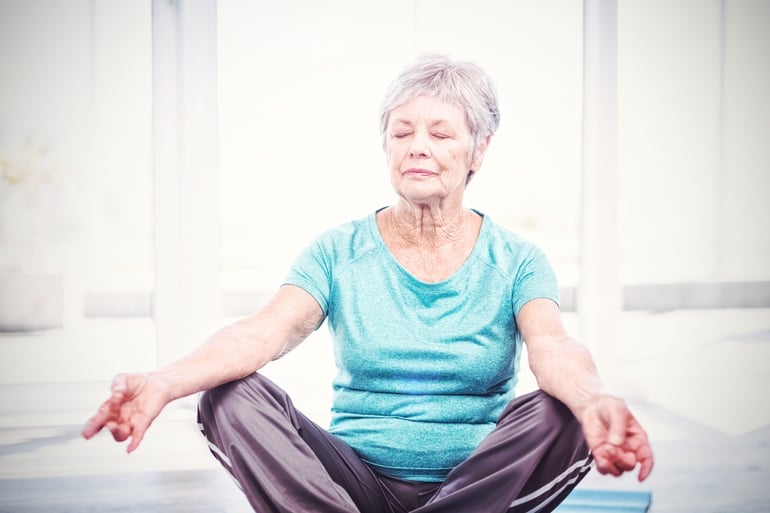
Stress can be a problem for a person at any age or stage of life, but by the time a person reaches retirement, daily life should be a breeze. Right? Well, just hold on just a minute there—it really isn't so. Stress can actually increase with age. Physical limitations or serious illness, financial worries, loss of friendships and friends, and feelings of purposelessness—all experiences common to older adults and all experiences that can have a worrisome effect on both physical well-being and brain fitness.
How to Recognize Stress
Not all stress is harmful. It is a natural response to specific situations and is actually your body's first line of defense for coping with challenges and responding to emergencies. Sharpened instincts and metabolic changes alert you to danger, help deal with physical harm, and heighten awareness of options in serious situations. In the short term, the increased heart rate and respiration are beneficial and natural. It's the adrenaline rush that allows individuals to perform at their best.
Over time, however, the same physical responses can be detrimental to both mind and body, impairing normal immune system response and contributing to specific illnesses such as coronary artery disease. Continuing worry decreases life satisfaction and can manifest in a variety of ways:
- sleeplessness
- forgetfulness
- weight gain or weight loss
- emotional withdrawal
- moodiness
- skin rashes
- clinical depression
Stress can also accentuate bad habits.
What to Do About Stress
Scientists and psychologists today acknowledge that brain fitness and bodily health are two sides of the same coin. That realization leads to some commonsense ways to deal with the ongoing pressures of life, whether they are the rigors of final exams, relationship problems, financial woes, business setbacks, personal illness, or the loss of family and friends. No one is immune.
In high school and college, students are urged to take a break in order to "clear the mind," to participate in sports, or listen to music in order to increase concentration. Active time out of doors, perhaps with pets, benefits young families with busy schedules. Spending time among nature or indoor greenery has been shown to increase job satisfaction; abandoning the desk and unplugging technology periodically boosts business productivity.
It is no different for seniors.
Yoga classes or tai chi instruction, learning a foreign language, volunteer work, and scheduled social interaction are all beneficial to brain fitness. If you are considering a move to a new town or a retirement community, check out all of the possibilities for active involvement. The options are endless: Cooking classes, a weekly bridge or poker game with old friends, dance instruction, museum tours, and performance events all provide the physical and mental stimulation that can mitigate stress and worry.
Taking positive steps to be active and involved goes a long way in combating the stressors of life.
3 tips for unwinding when life has you stressed:
We all feel stressed. Here are a few suggestions to help you reduce anxiety and recover your sense of well-being.
Consider Mindfulness
Relaxation techniques are also cited by experts as a positive way to alleviate stress. Breathing deeply, sitting quietly, reflecting on the positive, and practicing conscious meditation can regulate heartbeat, improve circulation, relax muscles, and restore a positive attitude. If you have never practiced any form of guided meditation or visualization, there are many paths to explore—often, such exercises are offered by retirement communities or senior centers alongside yoga and tai chi. Physical massage and rhythmic movement techniques are also effective, not only for treating bodily ills but for maintaining mental acuity.
The Mayo Clinic advises that remembering "the four As" can be instrumental in facing normal stress with a positive attitude:
- Avoid
- Alter
- Adapt
- Accept
For seniors, this is important advice. While many of the stresses of aging cannot be avoided, you can still alter your actions, adapt to situations and accept new life situations just as readily as younger folks. With the support of a strong social network and caring community, you can weather stress and stay fit in style.












